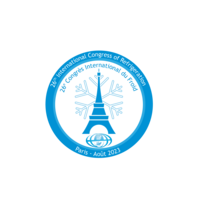
Document IIF
Les effets autonomes de la cryostimulation du corps entier à deux températures différentes chez les patients obèses.
The autonomic effects of whole-body cryostimulation at two different temperatures in patients with obesity.
Numéro : 0594
Auteurs : FONTANA J. M., PITERA P., VERME F., CREMASCOLI R., CATTALDO S., MAI S., BIANCHI L., CIMOLIN V., BRUNANI A., CAPODAGLIO P.
Résumé
A growing body of work suggests that Whole-Body Cryostimulation (WBC) could play a role as adjuvant therapy in various conditions of rehabilitation interest, as it can act as a “training method” for the autonomic nervous system, a novel anti-inflammatory and antioxidant treatment with beneficial effects on body composition and adipose tissue. The powerful effects of thermal stress on the physiological responses of the human body present unique features that could potentially be further exploited as an add-on treatment in the management of obesity. The purpose of this study was to investigate the effects of WBC at two different temperatures the first defined as “cryogenic” -110°C, the second as “non-cryogenic” - 55°C, on heart rate variability, body composition, metabolic profile and physical performance in patients with obesity undergoing a multidisciplinary rehabilitation program. 30 patients (12 men and 18 women) with BMI>30 were hospitalized for a multidisciplinary rehabilitation program (diet + exercise) and non-randomly allocated either to a group receiving 10 2-min WBC sessions at -110°C in a cryochamber over two weeks (RWBC) or a control/sham group receiving the same intervention at temperatures of -55°C (RS). The results observed decreased percent changes were found for triglycerides, total cholesterol, HDL, LDL and glucose in both groups, but to a greater extent in the RWBC group. The percent change in diastolic blood pressure (PAD) decreased more in the WBC group, while heart rate (HR) decreased in the RS group but increased in the RWBC group. Interestingly, spectral analysis of RR interval variability shows an increase in parasympathetic control in both groups after the 10th session of WBC, but only in the WBC group was there a decrease in arterial pressure (PA). Among body composition parameters, waist circumference (WC) had a higher reduction in the WBC group. As for performance capacity, no significant changes in percentage between the groups were found for both 6-minutes walking test and hand grip strength. Our results showed that the cryogenic temperature of -110°C in the RWBC group induced stronger effects on metabolic profile (glucose and lipids), body composition (WC) and vital signs than -55°C of the RS group. Interestingly, the significant reduction in HR observed in both groups after spectral analysis of RR interval variability suggests an increase in parasympathetic tone, suggesting that both temperatures might have an effect on the parasympathetic component, but stronger for the lower temperature, as the RS group showed no significant change in PA. Overall, the improvements observed provide initial support for the use of WBC as an adjuvant treatment for patients with obesity.
Documents disponibles
Format PDF
Pages : 11 p.
Disponible
Prix public
20 €
Prix membre*
Gratuit
* meilleur tarif applicable selon le type d'adhésion (voir le détail des avantages des adhésions individuelles et collectives)
Détails
- Titre original : The autonomic effects of whole-body cryostimulation at two different temperatures in patients with obesity.
- Identifiant de la fiche : 30031564
- Langues : Anglais
- Sujet : Technologie
- Source : Proceedings of the 26th IIR International Congress of Refrigeration: Paris , France, August 21-25, 2023.
- Date d'édition : 21/08/2023
- DOI : http://dx.doi.org/10.18462/iir.icr.2023.0594
Liens
Voir d'autres communications du même compte rendu (491)
Voir le compte rendu de la conférence
Indexation
- Thèmes : Cryomédecine et cryochirurgie
- Mots-clés : Cryothérapie; Santé; Médecine; Application médicale; Cryogénie
-
Impact of regular cold exposure on electroderma...
- Auteurs : MACHNIA M., DOUZI W., JDIDI H., MILLER E., DUGUE B.
- Date : 21/08/2023
- Langues : Anglais
- Source : Proceedings of the 26th IIR International Congress of Refrigeration: Paris , France, August 21-25, 2023.
- Formats : PDF
Voir la fiche
-
Is whole-body cryostimulation useful in post-Co...
- Auteurs : PITERA P., VERME F., CATTALDO S., BRUNANI A., FONTANA J. M., CAPODAGLIO P.
- Date : 21/08/2023
- Langues : Anglais
- Source : Proceedings of the 26th IIR International Congress of Refrigeration: Paris , France, August 21-25, 2023.
- Formats : PDF
Voir la fiche
-
Popularity and achievements in using whole body...
- Auteurs : MILLER E.
- Date : 21/08/2023
- Langues : Anglais
- Source : Proceedings of the 26th IIR International Congress of Refrigeration: Paris , France, August 21-25, 2023.
- Formats : PDF
Voir la fiche
-
Difference in skin temp variation during a whol...
- Auteurs : BOUZIGON R., POLITOFF M., PETIT H., DUPUY O., DUGUE B.
- Date : 21/08/2023
- Langues : Anglais
- Source : Proceedings of the 26th IIR International Congress of Refrigeration: Paris , France, August 21-25, 2023.
- Formats : PDF
Voir la fiche
-
The effects of high intensity interval training...
- Auteurs : ZIEMANN E., RODZIEWICZ-FLIS E., JAWORSKA J., FLIS M., ANTOSIEWICZ J., KORTAS J. A., LOMBARDI G.
- Date : 21/08/2023
- Langues : Anglais
- Source : Proceedings of the 26th IIR International Congress of Refrigeration: Paris , France, August 21-25, 2023.
- Formats : PDF
Voir la fiche
